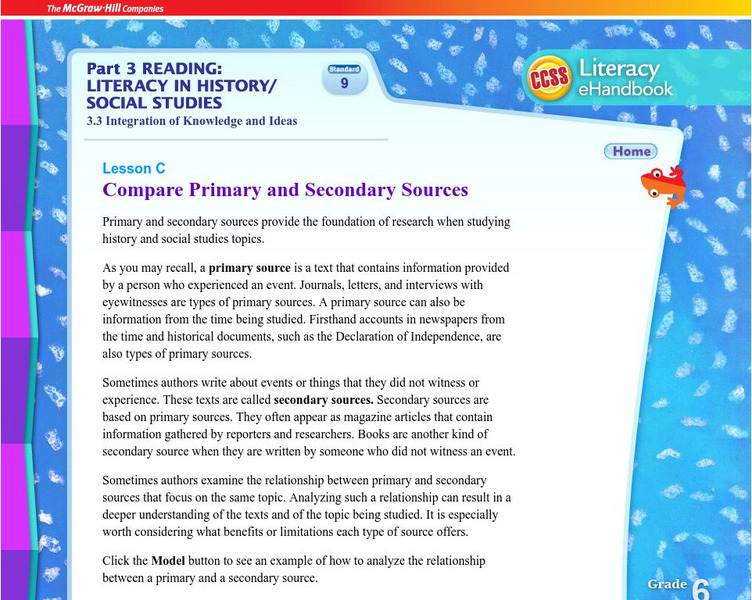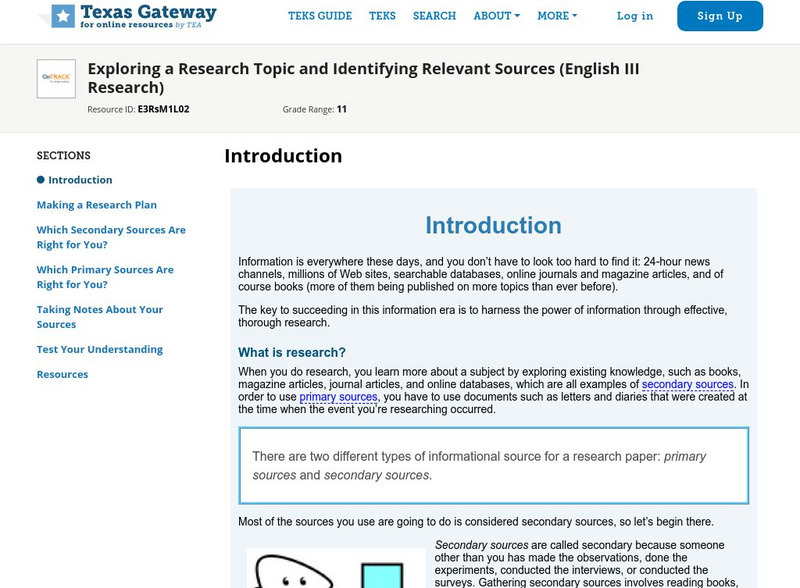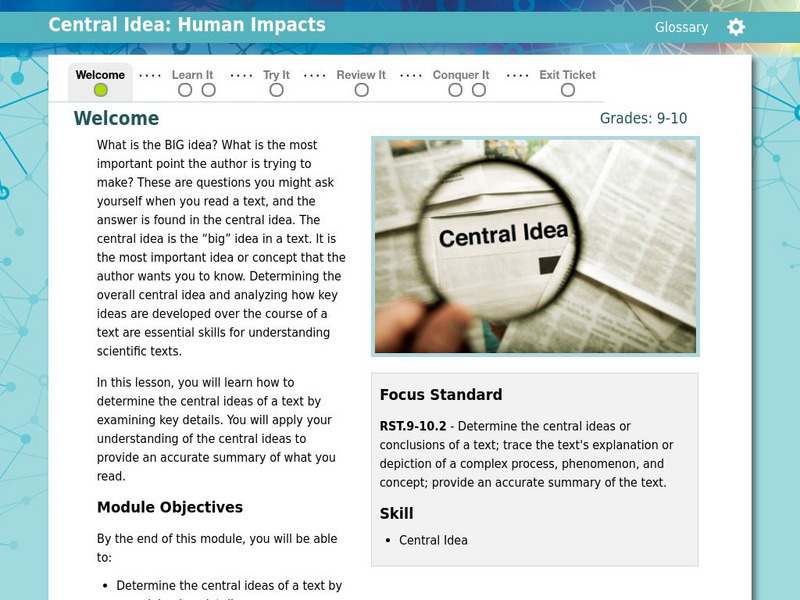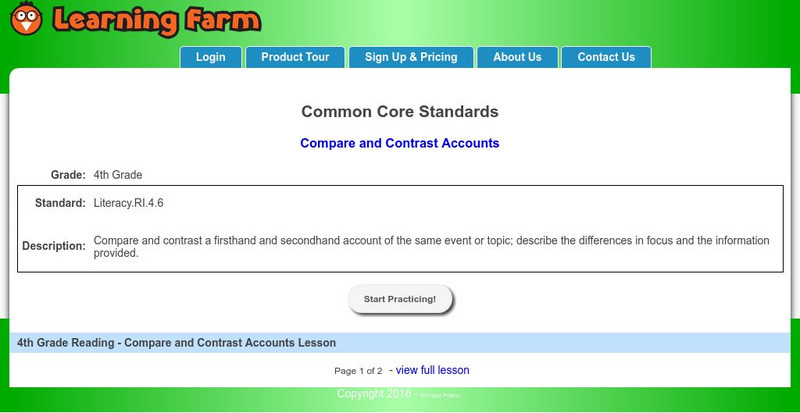EngageNY
TASC Transition Curriculum: Workshop 12
How can opinions slant facts? Workshop participants learn how to examine primary and secondary sources and identify the author's point of view. They also examine how visual art impacts the meaning and rhetoric of sources. Full of...
New York State Education Department
TASC Transition Curriculum: Workshop 11
You'll C-E-R a difference in classroom achievement after using a helpful lesson plan. Designed for economics, civics, government, and US history classes, participants practice using the CER model to craft arguments about primary and...
PBS
Pbs Learning Media: Straight to the Source: Primary and Secondary Sources
Students discover what primary and secondary sources are and how to use them in this lesson from PBS Wisconsin Education. They watch video clips from the documentary "Wisconsin Hometown Stories: Neenah-Menasha," identifying the primary...
Library and Archives Canada
Nlc: Defining Primary and Secondary Sources
Libraries and archives hold documents and books that can be used for your research projects. Learn how to divide and identify them into primary and secondary sources in this tutorial.
Curated OER
Mc Graw Hill: Compare Primary and Secondary Sources
Learn how to analyze and compare the relationship between a primary and a secondary source.
Lumen Learning
Lumen: Finding and Evaluating Research Sources
This lesson focuses on how to find, evaluate, and use primary and secondary sources using printed and online sources. It provides practice writing activities such as examining the same topic through primary and secondary sources and...
Texas Education Agency
Texas Gateway: Exploring a Research Topic and Identifying Relevant Sources
In this lesson, students learn how to plan their research, find relevant primary and secondary sources, and use those sources in your research papers. W.11-12.8 Sources/Integrate/Cite
Duke University
Duke University Libraries: Finding Primary Sources
Finding primary sources can be difficult and confusing at times. This site provides a list of history databases, rare books and manuscripts, and research guides for those looking for primary resources such as diaries, letters,...
Thinkport Education
Thinkport: The Revolutionary Americas
Find relationships among primary and secondary sources of information that identify where information from different sources converges and where it differs.
Lumen Learning
Lumen: Research Process: Finding Sources
This lesson plan focuses on how to find sources including information on research strategies: preliminary, intermediate, and advanced. It provides a variety of resources available in each level including videos: " How To Google Like A...
Thinkport Education
Thinkport: One Person Can Change the World
In this module, students will read primary and secondary sources about events from the Reformation movement. They will identify the central ideas of the texts, and cite evidence from the text that supports the central idea.
Thinkport Education
Thinkport: Determine the Central Idea: Human Impacts
Students will learn how to identify the central idea of a text about human impacts by examining key details.
Better Lesson
Better Lesson: Native American Petroglyphs Close Read Compare and Contrast
Students will read an article by Byron Loosle on the meaning of Native American symbols and compare that to a video clip of an actual Native American explaining the symbols. There is a difference of opinion and students will weigh both...
Thinkport Education
Thinkport: Protecting the Rights of the People
Find relationships among primary and secondary sources that identify where information from different sources converges and where it differs.
Other
Sadlier School: Comparing and Contrasting Firsthand & Secondhand Texts
This unit uses first- and second-hand accounts to explore the life of Ruby Bridges and revolves around the book "Through My Eyes" by Ruby Bridges. This detailed lesson plan includes a full literacy unit, tips for small group and...
Other
University of Idaho: Internet Information Literacy
A lesson module on identifying the types of information one finds on the Internet (popular/scholarly, primary/secondary/tertiary) and the different formats information can come in. Learning exercises are embedded in the module, and a...
Other
Learning Farm: Compare and Contrast Accounts
Students will practice comparing and contrasting a firsthand and secondhand account of the same event or topic.
University of Houston
University of Houston: Extra! Extra! What's the Big Idea?!
Get the feel of running a newspaper by selecting articles and pictures. If you are interested in checking out real newspapers, there is a clickable list of online newspapers for younger readers.












